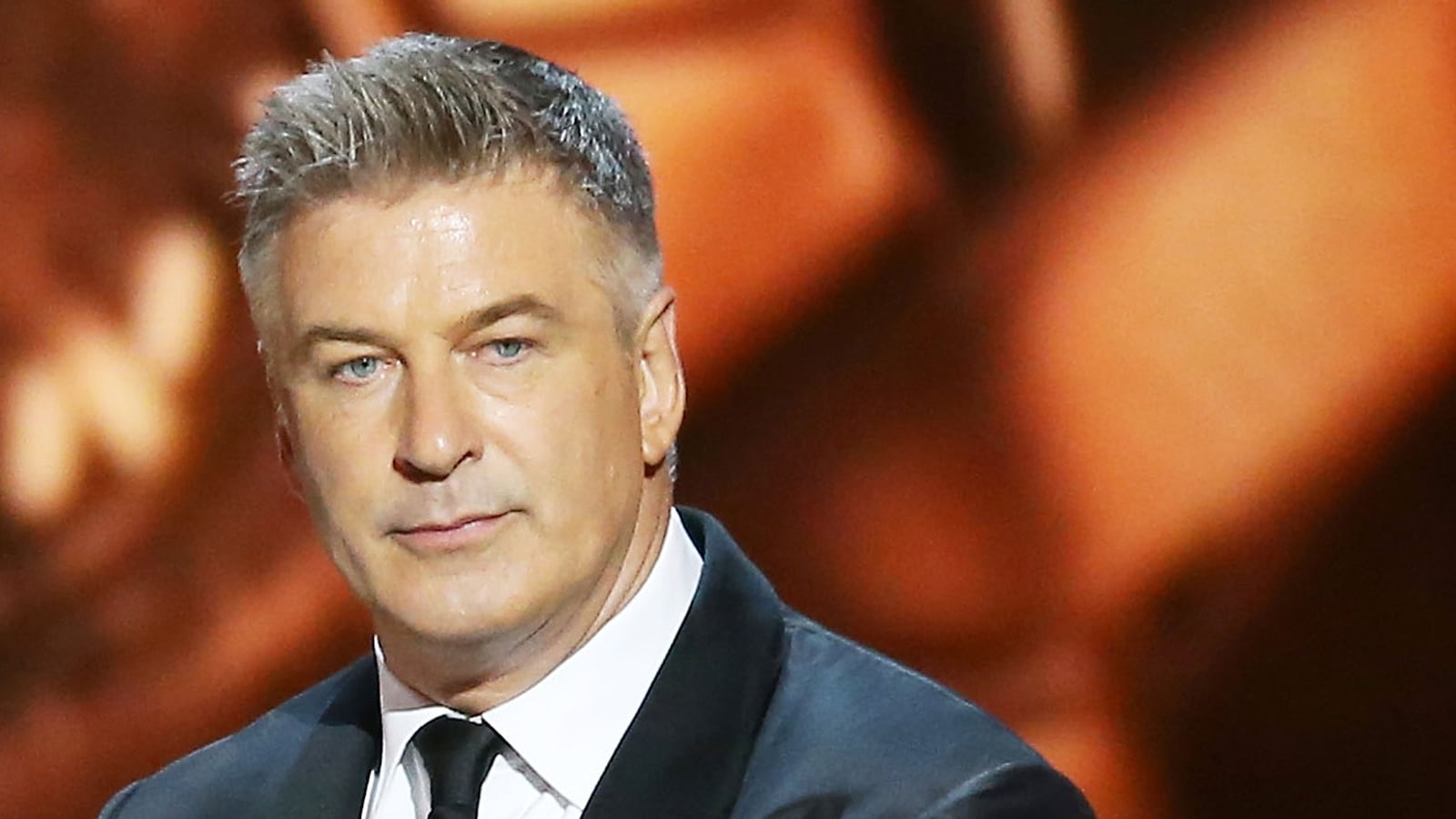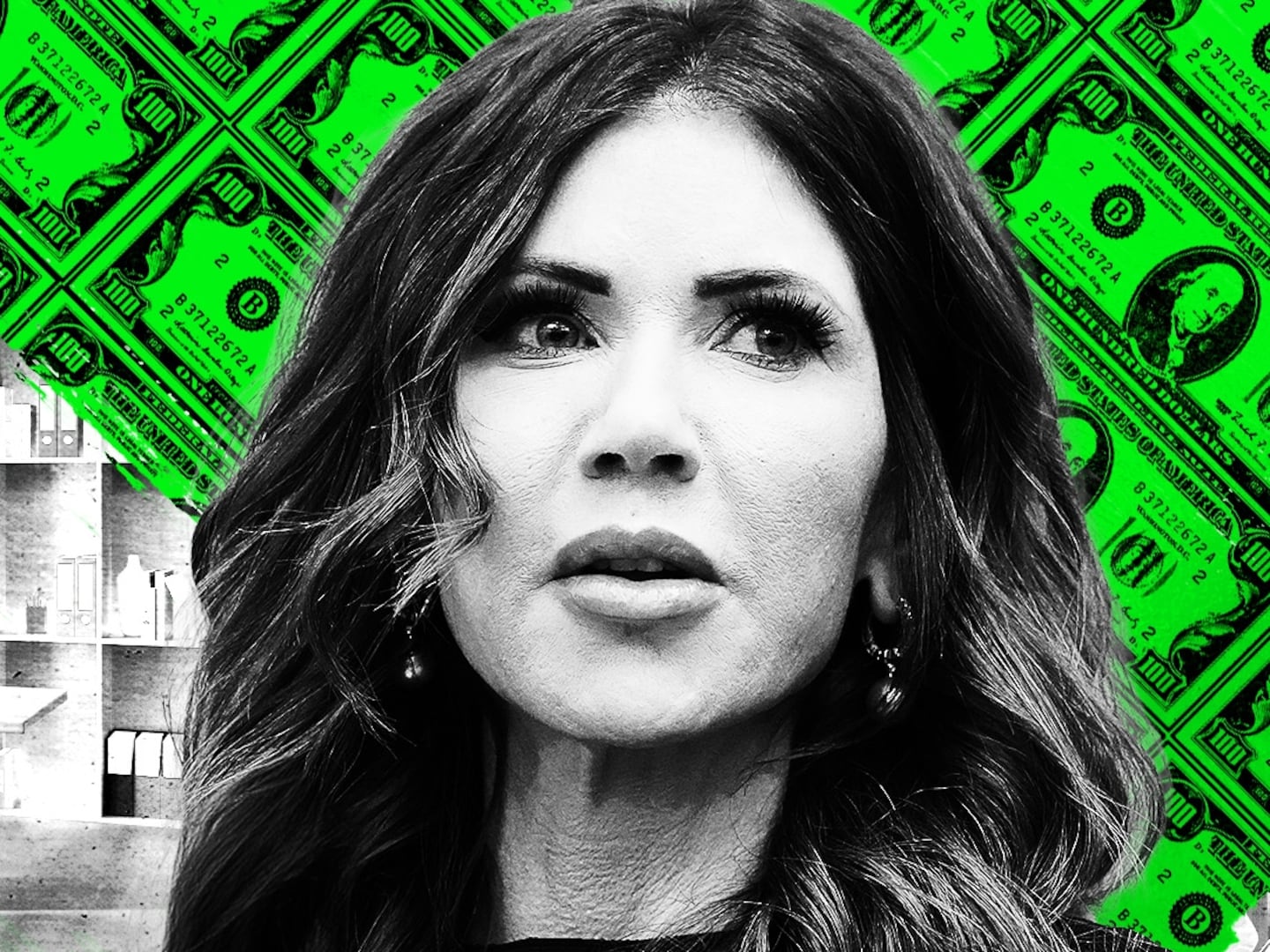If an artist’s career is, like a film, measured in three acts, Alec Baldwin just began his third.
After seven seasons portraying Jack Donaghy, the cavalier curmudgeon on NBC’s celebrated sitcom 30 Rock, resulting in a staggering seven Emmy nominations—and two wins—Baldwin has embarked on a new venture: talk show host. On Oct. 11, MSNBC aired the first episode of Up Late with Alec Baldwin, wherein the 55-year-old actor engages in Charlie Rose-esque conversations on a variety of topics. His first guest was New York City mayoral hopeful Bill de Blasio, and his second was Oscar-nominated actress Debra Winger.

In addition to the hosting gig, Baldwin teamed with filmmaker James Toback to make the documentary Seduced and Abandoned at last year’s Cannes Film Festival. The film, which will air Oct. 28 on HBO, is part documentary and part mockumentary, and sees the pair canvas actors, filmmakers, and film financiers at Cannes to try to raise money for a bizarre film project: an X-rated allegory set in Iraq during the U.S. occupation which they describe as “Last Tango in Tikrit.” It’s an amusing satire on the horrors of contemporary film financing featuring venerable talking heads ranging from Martin Scorsese to Roman Polanski.
Baldwin opened up to The Daily Beast about the film industry’s problems and his new MSNBC show, and also sounded off on Mayor Bloomberg, The New York Times, and much more.
Congrats on the baby, and the MSNBC show. Are you getting any sleep?
Not enough. Every other day. It’s tough.
Let’s chat about Seduced and Abandoned. My take from the film is that it’s become far more difficult to produce works of art in the film industry these days. The auteurs of the world are no longer given free rein and are now beholden to certain financial imperatives.
The toughest thing in the world now is to have an idea that is your own idea, and to hold fast to your idea, and protect your idea, and get that movie made. Years ago, the Zanuck’s of the world didn’t necessarily know how to make a great movie, but they knew people who knew how to make great movies. But there was some risk involved. The problem we have now is that people are living in this fantasy of the “no-risk movie business.” There’s no such thing, but people keep stalking it like some Sasquatch.
Did the movie business become “no-risk” when it started accepting money from Wall Street?
That might be some of it. The pedigree of the financiers is Wall Street and beyond, and not only do they not know anything about movies, but they don’t even like movies. They don’t even go to the movies.
Right. They’re just assets to them. Part of a portfolio.
Exactly. You don’t have to live in a condominium on the West Side to sell condominiums on the West Side. It’s the same with the movie business. The movie business was a passion. The Zanuck’s and Medavoy’s gave money to people they believed in. And now, the studios are run by people who interfere with movies being made, and take no risks with the movies they make.
There’s a moment in the film where you’re talking about directors and you tell Toback, “In the past, I trusted people who I should not have trusted.” What are some examples of that?
If you only did movies with people you had confidence in as directors, you’d stay home a lot. The greatest shortage in the business today is directors. There are acres and acres of great scripts waiting to be produced, and armies of great actors to play these parts, but there aren’t many good directors. I did a film once where I saw the director polling the producer (who was a very famous producer), taking the star’s temperature, the writer who was famous who they sent in to polish the script, and the director didn’t have a point of view of his own. He’s there to find out, “Who’s the power in this room, and whose ass do I need to stick my tongue up on this film?” And you think, “Oh no, not again.”
What film was that?
[Laughs] It doesn’t matter.
You canvassed a lot of great filmmakers in Seduced and Abandoned, including Roman Polanski. He’s a pretty controversial figure. What’s your take on his exile status?
My take on him is that I separate people’s personal lives from their work, and he’s one of the most gifted directors that’s ever lived. And if you see the documentary Wanted and Desired, he goes and gets sentenced to go to a psychiatric facility to be evaluated and make a recommendation to the judge to see if he’s a threat or not. And he goes to that facility and they release him early. They basically said he’s this damaged kid from the Holocaust and his wife gets butchered, and he loses his marbles. He’s a bit of a horn-dog with women, too, but they didn’t think he was a threat to society. This is where the great bullshit is: it’s not like Polanski and his lawyers argued in court to cherry-pick the institution they wanted him to go to. That judge sent him to that place. He goes there, they give him the determination, and they say, “Let him go … he’s fucked up.” And what does the judge do? He plays politics with the DA and all the bullshit [the documentary] reveals. So, I’ve got no problem with Polanski.
I saw the first MSNBC show. Why did you decide to go the talk news-hosting route? Did you look at the talk news landscape and view it as too bombastic, and decide to take a more measured, conversational approach?
Well, that’s what I did. I did this podcast with WNYC for two years [“Here’s the Thing”], and the longer format benefitted us. If you let people in there and let them breathe, and don’t try to push people and take something from them, they may give it to you, and when they give it to you, it’s so much better than trying to take it. TV is different, because to get people to stop the dial and watch TV, with the visual component, is hard. It’s a grab, and getting that grab is really, really hard. I underestimated how hard it would be. I had three or four very lucrative sitcom offers to go and just replicate what I did for Tina [Fey, on 30 Rock]—go and play a Type-A, out-of-touch raging whatever kind of character. There were offers to be a cast addition on other shows, or to make movies that were not that great of an opportunity. So, when I laid everything end-to-end, and also the ability to stay at home, because my wife and me just had a baby, this opportunity was the best opportunity for me. I’m going to do it for a year, and then we’ll see what happens.
There was a somewhat glowing New York Times review for your show, but the writer still made several not-so-subtle references to your “temper” and even said your gelled hair looked like “devil horns” at one point. Do you feel like you have a temper, or people have taken a few isolated incidents and labeled you as this guy who always blows a gasket?
If you have the misfortune where every time you get into an altercation with somebody they happen to have a camera in their hands, and they’re a professional photographer … I don’t have those problems with people that sell peanuts at Yankee Stadium. I don’t have those problems with the teachers at my kid’s school. I don’t have those problems with the directors I work with. Every time that happens, it’s because I have this scumbag photographer arguing with me about his First Amendment rights who almost hits my wife with a camera. Now, in California, they just changed the [paparazzi] law, so at least somewhere they’re getting it right. And it’s not like I’m the only one who sees this, or is acting on this. The laws here in New York have to change as well.
If these guys take your telephoto from across the street, they get what they want, and it’s not like I’m J.D. Salinger and you can’t find me. I’m out there and show up to events, so what the fuck do they want? My wife tripped and fell the other day trying to avoid some photographer, and he shot her and laughed at her. These guys are not Robert Capa. They’re all scumbags, and trash. So, if I had some altercation with them, I’m doing what I gotta do. I don’t have any problem with that at all. If one of these guys gets smacked along the way? I have no problem with that whatsoever. And the Times is no different than any other paper. They need to come up with something that’s an easy tag.
You really think that The New York Times is no different than any other paper?
Today? No. They want readers. The old Times, before they had serious financial concerns of their own, might have behaved differently. I don’t think the Times today can afford to behave the way the Times used to behave. But they don’t get paid enough money to sit down and think about who I am, so I don’t blame them.
Journalists, you mean?
Yeah. The reporter that wrote that article that mentioned “devil horns” and my “temper,” that person doesn’t get paid enough money—nor should they. It’s just not important enough to tell people who I am, you know what I mean? If you rely on the media to tell people who you are, you’re always going to be disappointed. When I read profiles of people in the media that I know privately, they’re never as smart as they seem and they never get it right. It’s someone’s perception, and if the Times promotes that perception of me, there’s really nothing I can do about it. But to some extent, I’ve done some things to deserve it. I have. I’m not gonna lie about that.
I’m a New Yorker, too. You have a line in the film where you joke to James, “I live in an emirate.” What did you mean by that?
New York has their own politics, their own campaign finance laws. I’m worried that because of Bloomberg we’ve gotten closer to being Singapore than we’ve ever been—just an island of rich people. All rich people. Bloomberg has a constituency, and that constituency is high-end jobs. Have you ever seen more cranes going up in this city? New York is always tearing itself down and rebuilding itself, and I think the problem is how much affordable housing we have. If people can’t afford to live here, well … Bloomberg was somebody who very skillfully solves a lot of short-term problems, and great leadership solves long-term problems. Great leadership sees what’s in the long-term interests of a society, and sells them on the idea of fixing that problem. I don’t think that Bloomberg ever solved any long-term problems in this city.
I was a fan of 30 Rock, and you really knocked that role out of the park. Was there a moment when you saw the show coming to close and were worried about your next step?
Whenever you do television it’s painful because if it’s successful, you get stamped with that for a while. To have a film career and make a film every year and work for great people—DiCaprio and Johnny Depp—not everything they do works either. There’s risk for everybody, and they have every advantage because the movies they make are pretty muscled-up in terms of the crew and all that. I figured that to go back into the film business, for me, was just impossible. I mean I have film offers—I’m going to do a film this fall with Cameron Crowe and Bradley Cooper. You do little things here and there to enjoy that space. But you can’t make a living at it, and the people who can make a living at it, it’s like musical chairs, and they’ve taken away a lot of those chairs. You can’t make a good living making good films.






